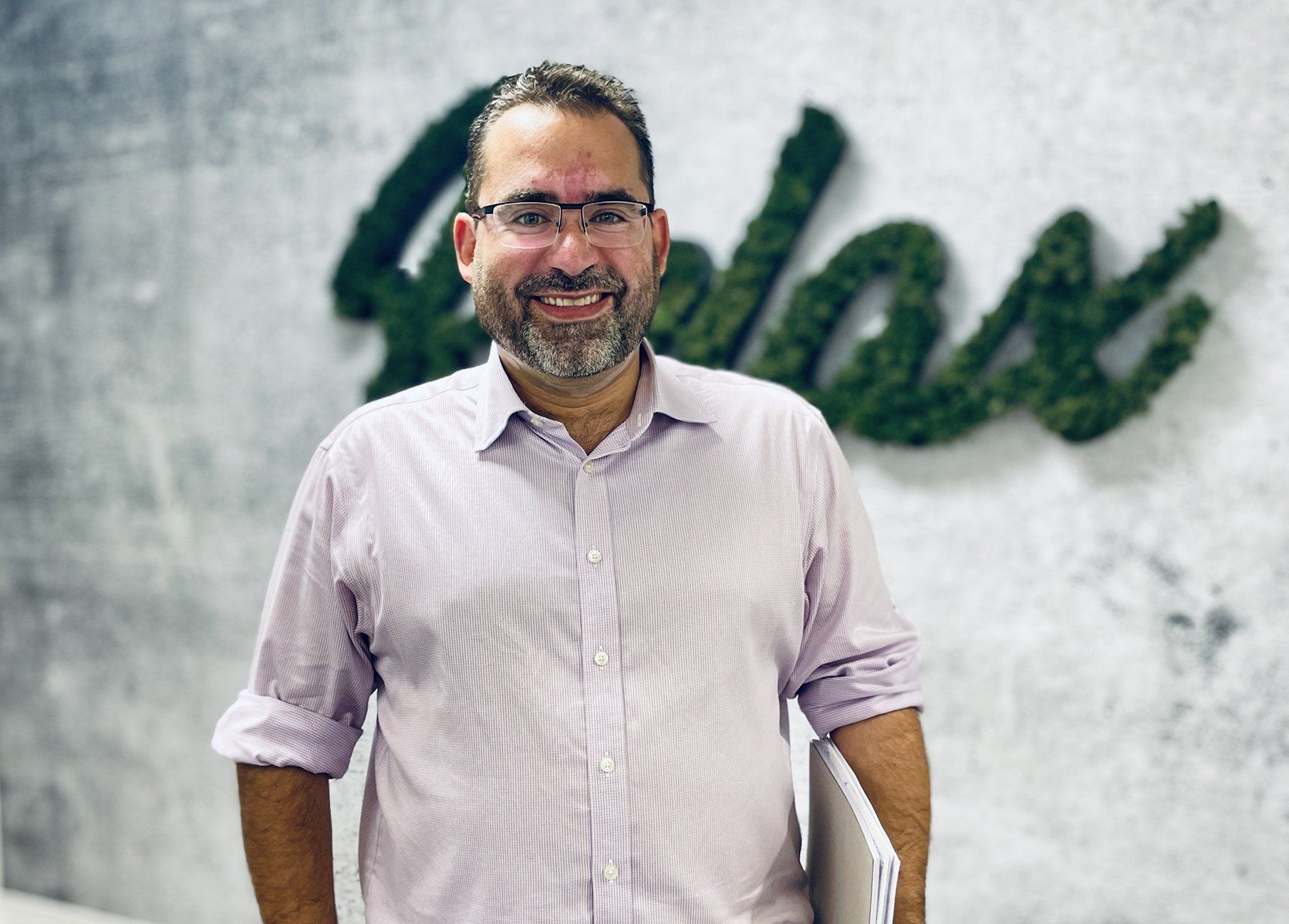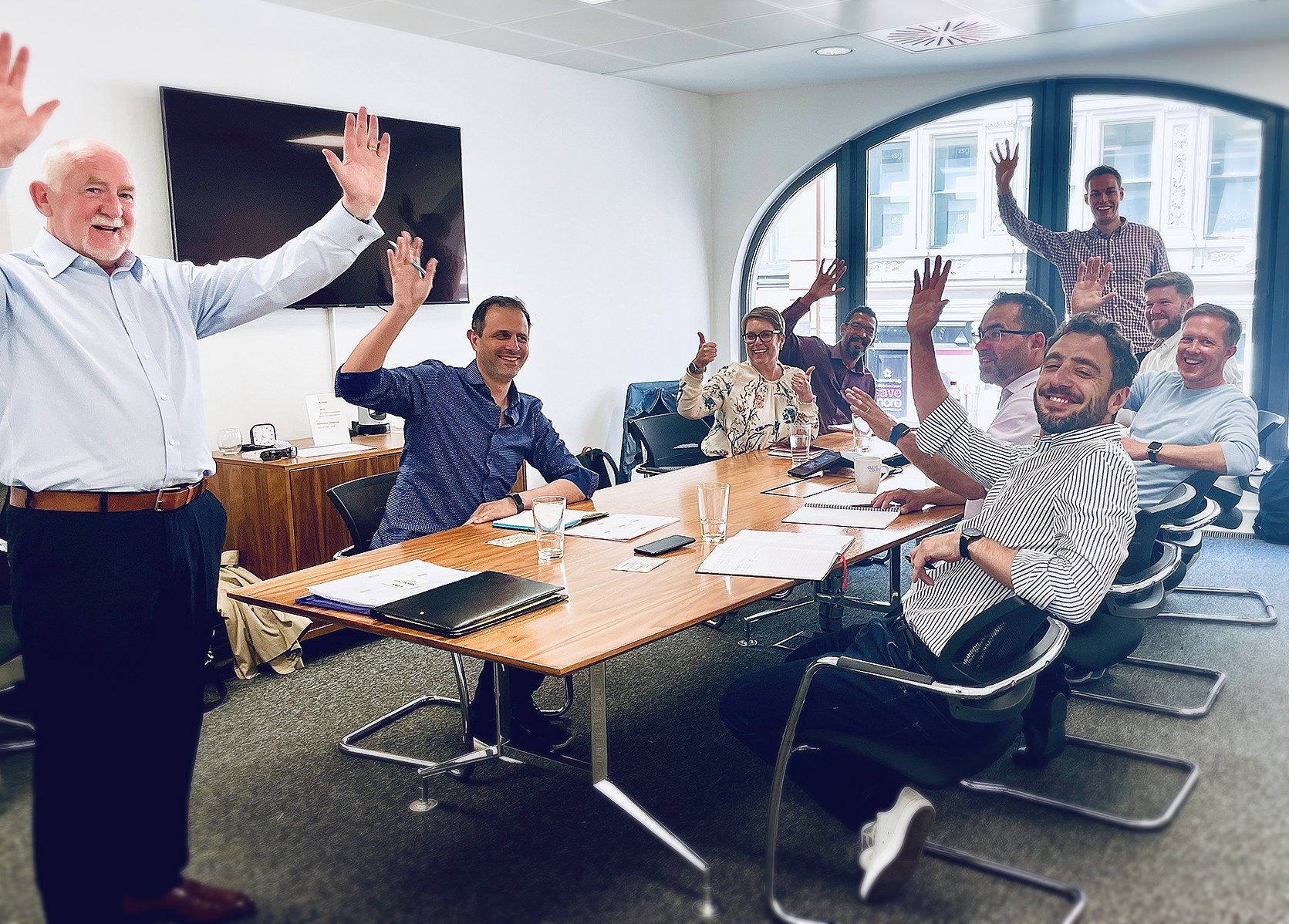Future-proofing the team, as well as our software
Future-proofed is one of our FAIR™ Values here at ClearCourse, and by that, we mean we constantly seek out innovation and strive for progress.
A lot of the time, we think of being future-proofed as relating to our business, our clients and our software solutions. And with good reason – we want to create a future-proofed business that helps keep our clients future-proofed, too, for whatever comes their way.
But to do that, our people need to be future-proofed too. If we’re not always learning new things, challenging our thinking and our ways of doing things, then we’re not progressing at all.
Chances are, we’re going backwards. And you can’t build a brilliant business going in that direction.
A thirst for knowledge – a ClearCourse must-have!
The desire to learn new things - that thirst for knowledge and being open to your ways of working being challenged - is vital for any successful ClearCourser. People with that outlook will always be searching for inspiration, ideas and concepts that challenge how they work and think.
And, as a business, it’s important we encourage and complement that with more structured learning and development – something members of our Membership Services Division did recently when they took part in a two-day workshop, The Art of Sales Negotiation.
“The course was led by Alan McCarthy of The Resource Development Centre. He’s an expert negotiator – he’s been involved in all types of negotiations, including corporate, diplomatic and even hostage, and he was a fantastic facilitator,” explains Jeremy Jalie, Business Development Director of one of our brilliant ClearCourse businesses, Silverbear.
“Phones and laptops were put away, and we were all fully immersed in the sessions.”
Without giving away all of Alan’s secrets, at the heart of the training was the concept of avoiding negotiation if you can. This may sound counter-intuitive when it comes to sales negotiations, but there’s a huge amount of wisdom in that sentiment.
“If you can understand what it is both parties want out of a deal, know what the minimum is you want out of it, and know the value in what you’ve got on the table, then it can give you the confidence to avoid a situation where you’re bartering on price,” says Jeremy.
“Alan used a methodology called the jellyfish, which essentially helps you work out your ideal and worst-case position and the ideal and worst-case position of whoever you’re negotiating with. By using that as a barometer all the way through, you can gauge what you need to do to reach a conclusion that works for both parties without giving too much away.”
Avoiding negotiating with yourself was another key concept. If you know your baseline and your must-haves before you enter a negotiation, then you can’t be tempted to compromise on those.

Putting theory into practice
However, the true measure of any training course is how useful it is after the event. We’ve likely all experienced those training sessions that seem great at the time but in hindsight, make little or no difference to our day-to-day.
Of course, part of that is down to the individual’s desire to implement what they’ve learned, but a huge part of it is about the quality of the training, how much value you see in it immediately, and how effective it is when you initially implement it.
On the second day of the course, the group of eight split into two teams to battle it out in a ‘real-life’ negotiation, which became rather competitive.
“We were up against a team that included my boss. We didn’t win, and I was pretty disappointed because it all became very competitive!” laughs Jeremy.
That experience was important to help the group put what they had learned into practice, and after the course, Alan sent Jeremy a copy of his book, with a dedication that read, ‘Jeremy, don’t forget rule number one: don’t negotiate unless you need to’.
“It reminded me that’s why we’d lost that negotiation; I’d tried to keep negotiating when in reality, we already had a pretty good deal on the table.”
Those experiences have helped those who attended the course to put new tactics and approaches into action straight away, and Jeremy’s seen an immediate benefit.
“We were taught a way to summarise things at different points of negotiation, which enables you to remove yourself from the moment, and assess where you’re at for both parties.
“I’ve also been using the jellyfish methodology to get a clear idea of what we want from a deal and what’s important to the other party. In some cases, you can go into a conversation knowing that something that has relatively little impact for you – for example, payment terms or additional training – might be hugely important for the other party.”

The importance of adding to your knowledge
The prospect of taking two days out of the office to go on a training course may bring you out in a cold sweat – it seems we’re all so busy doing the nine-to-five that we couldn’t possibly take that time out.
That’s where the concept of important versus urgent comes into play. And spending time doing training like this may not be urgent – but it’s incredibly important.
“You’re used to working flat-out, so having the opportunity to step out and think about things more theoretically or in a more conceptual way is really helpful,” says Jeremy.
“There’s an immediate benefit to doing something practical like this – you’re learning things you can put into practice right away that will have a positive impact.
“But it’s also motivating to spend time with and learn from other people in the company who are doing the same thing as you are every day.”
Jeremy, of course, is just one of more than 800 ClearCoursers who each have their own story to tell when it comes to future-proofing themselves and their skills.
As part of creating a brilliant business, we’re intent on providing opportunities to gain new skills, new ways of thinking and new knowledge to all of our people – whether through formal training or general idea sharing and challenging each other as we go.
After all, that’s how we work better together.


